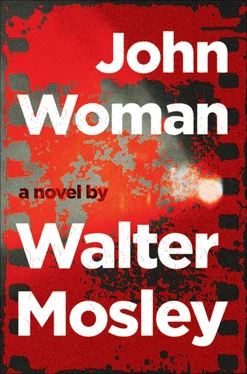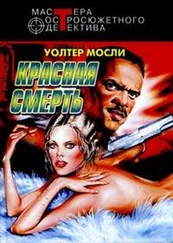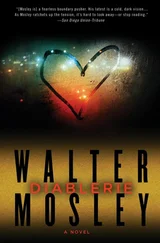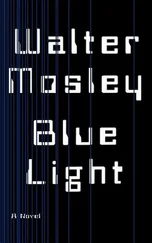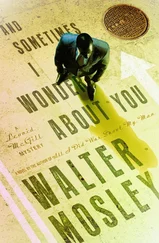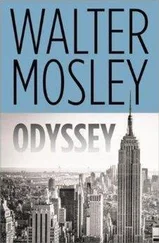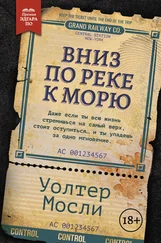“You’re one of the few professors at NUSW who were truly aware that the acquisition of knowledge, the process of learning, is an end in itself.”
“What do you want?”
“I’m calling to offer you membership in the upper echelon of the Platinum Path.”
“No.”
“You refuse?”
“I don’t believe that you are who you say. How can I accept an offer that cannot be made?”
“Why would I lie?”
“Maybe you’re an old friend of Chapman Lorraine.”
“And Lucia Napoli? Filo Manetti?”
“Your voice is familiar. Do I know you?”
“There’s already a question on the table, Mr. Woman. Or would you prefer to be called Professor?”
“You’re serious?”
“I am Service Tellman,” the voice said, “leader and founder of the Platinum Path, calling to invite you into our ranks.”
“I thought you had to be rich and famous or powerful to be considered for that berth.”
“Fame has never been a criterion. And you are powerful.”
Imagining these last words coming from his father John said, “Thank you.”
“Then you accept membership?”
“Even if you were qualified to offer it, I’m going to jail.”
“We have members everywhere,” the man calling himself Service Tellman said, “even in prison. Jose Velázquez is a foot soldier on the Path.”
Before, when he first got up, John was still mostly asleep. Then, when he heard the dead man’s name spoken in a voice so tantalizingly familiar, he came to consciousness — a man awake in a world he knew. But when that voice uttered a name that no one outside Rikers should have known, John’s mind opened wide. Abruptly a world he couldn’t imagine came fully into being, like Athena emerging from Zeus’s brow or the atomic bomb exploding over Nagasaki.
“Is this a trick?” Cornelius Jones asked.
“We would like to think that we’re the biggest trick ever pulled,” the voice said. “We’re attempting to rejigger destiny by changing the direction of the soul. We have men and women all over the world. There are professors and billionaires, movie stars and gardeners in our ranks.”
“Ron Underhill,” John stated.
“Yes.”
“You’re running a worldwide conspiracy while watering the cacti of the southwest?”
“We have a clear vision of a world that is not tainted by nationalisms, gods or the lies of history.”
“History,” John repeated the word. “That’s me.”
“That’s you.”
“And so all of this has been you? My capture, my lawyer, Jose Velázquez in my cell. Even the letters left on my kitchen table.”
“We want you with us, John. If we sit back and leave the world to its own devices — its capitalisms and Holocausts — there won’t be a civilization left. As you said in the first lecture at NUSW: there can be no future without a history and there is no history except for what you can imagine and do fear.”
“I’m not some savior,” John said. “I play with ideas — that’s all.”
“The play’s the thing.”
“I appreciate what you claim is your mission, Mr. Tellman, Ron. I mean I often think what’s wrong with the world is its honesty about desire. Lies and misdirections might indeed make a better tomorrow except that truth cannot be denied. And the truth is — we’re a deeply flawed species.”
“Even DNA can be altered,” the gardener said. “We can remake the history of our genes just as well as we can deconstruct our supposed pasts.”
“Service,” John mused. “Is that the name you were born with?”
“Will you join us, John?”
“No. At least not yet. I’m here in my mother’s old apartment saying good-bye to myself.”
“You will have to make up your mind sooner or later. One must plan for the future. In some cases, yours for instance, that future is synonymous with the world’s.”
His fears gone, John took Service Tellman’s words as a great gift for a man in his profession. The simple idea that a cult leader could make himself into a living martyr embodied everything John taught in his classes. To disappear in plain sight and still remain a force was a trick rarely used in a world of absolute rulers, capitalisms and other megalomanias.
John showered and shaved rather than planning his escape. He made coffee, read an old newspaper, then used the smart phone his lawyer gave him to look up Service Tellman and the Platinum Path on its browser.
There were many photographs of the organization’s founder usually in pedestrian poses — as he was coming out of some official door or smiling and turning toward someone at his side. The man in the pictures looked something like Ron Underhill but he had a short beard and a face different enough that one might not recognize him. A razor, a little plastic surgery, tinted contact lenses and the daily blessing of the sun were enough for the chameleon-prophet to continue on his mission unhindered by identity or the stench of his breed.
It wasn’t until John was riding the Number 6 train downtown that he considered running again. The subway car was crowded with well over a hundred passengers.
A young Asian woman in a bright green dress was standing next to him, clinging to the same chrome pole between the center doors of the subway car.
“Nice day,” John said. He was wearing the same soft-milled black cotton jacket and loose coal gray trousers he had on when he met Carlinda Elmsford. His T-shirt that day was navy.
“Beautiful,” the young woman replied.
“The kind of morning that makes you think maybe you should empty out a credit card and buy a ticket for Rome.”
“I like Paris,” she said, giving him a conspiratorial smile.
“Too rainy for me.”
“You going to work?”
“No,” he said, more contemplative than sad.
“You look very familiar. Have we met?”
“I’ve been in the newspapers on and off lately. They found a dead man in a wall in the East Village. I used to work on the other side of that wall.”
The young woman’s eyes widened.
“I’m headed down to the court now,” he said. “The judge has to decide whether or not to accept my confession and the sentence suggested by the ADA.”
“You did it?”
“Yes.”
“And you confessed?”
“Yeah.”
“Why?”
“Why did I do it?”
“No. Why confess? I read the articles. There was no witness or physical evidence. There’s no proof.”
“You’re a lawyer?”
“Executive assistant at Resterly and Lowe. I’m going to law school at night.”
“Born here?”
“Hong Kong. Why?”
“I think it’s the strong green of your dress. It’s a little more... um, forceful than most American-born women would wear.”
“But why confess?” she asked again. “It’s been such a long time.”
“I’ve tried for years to leave it behind me. But I couldn’t escape the guilt. If I confess and take my punishment I’ll have paid my debt and be able to move on.”
“You can’t change what’s done,” she said.
In superior courtroom 10a at 7:47, John was standing next to Nina Forché, across the aisle from ADA Lars and a young woman in a gray dress-suit.
I’d like to come visit you in prison, Hong Li had said when they departed the train at the Brooklyn City Hall stop.
“Why?” he asked as she handed him her card.
“My private phone and e-mail are at the bottom,” she said. “I’d like to find out if you feel that this was the right move after being locked up for a while.”
“All rise for the Honorable Judge Maxwell Halloran,” a uniformed guard bellowed.
Tall and grizzled the judge was light-brown like John. He had high shoulders and an unpleasant turn to his lips.
Читать дальше
